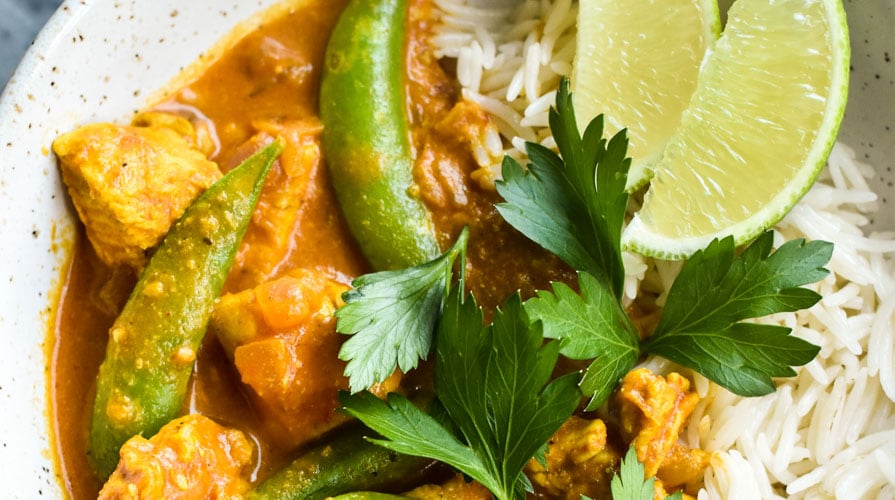
Back
Is coconut good for you or not?

Whether you learn best with one-on-one support or in a small group setting, we have the perfect program for you.
We also offer a wide array of self-guided materials, empowering you with valuable resources to further support your transformation.
How Nutrition Coaching Works
Our programs are meticulously designed to help you achieve your health goals while enhancing your overall well-being.
We provide personalized counseling and unwavering guidance, ensuring that every step of your journey is met with success.
Take Our QuizOnPoint's team of highly skilled online dietitians and nutritionists are dedicated to empowering you with the knowledge and tools to cultivate sustainable habits that lead to long-lasting success on your health and wellness journey.

Many people may feel a bit overwhelmed when trying to figure out if the latest food fad is indeed as healthy as it is touted to be. Recently, coconut has been on display as the drink or oil that has been missing from your healthy diet all these years. Coconut oil stormed onto the scene as a cure all, go-to, kitchen miracle. It quickly gained a fan base touting its numerous health and weight loss benefits. Coconut is one of the only plant based saturated fats in our food system, thus leaving many nutrition professionals wondering where to go from here. Before you add another dollop of coconut oil to your coffee, keep reading for the facts on coconuts.

Myth Busters
Saturated fats are often referred to as “bad fats” which leads one to question coconuts. As a conscious consumer, we must remember to look at the whole picture and not isolate one trait. Coconut oil contains medium chain fatty-acids which make up the beloved medium chain triglycerides. MCT’s are touted as promoting athletic performance, among other benefits. The length of molecule chains in fats do cause them to behave differently in our bodies and they are all processed slightly differently. Since MCT’s are processed in a less efficient manner, they are believed to be more energy expending. This is not enough energy expenditure to induce weight loss. Research does not support coconut oil as a weight loss tool, a cure for diabetes, Alzheimer’s, or any other chronic condition.
More than Meets the Eye
The three main coconut products that we see constantly in the store are coconut milk, water and oil. It can also be enjoyed in the form of flakes, a common ingredient in granola, smoothies, cereals.
Coconut MilkCoconut milk is a handy non-dairy alternative for those with both dairy and nut intolerance and allergies. You may have even had coconut milk long before the craze if you’ve enjoyed Thai curries
Coconut WaterCoconut water is from a young green coconut. It is a rich source of micronutrients, making it very appealing as a way to hydrate during activity. It is high in potassium, low in sodium and has almost no sugar. Due to its low calorie content, it may be a great choice to have instead of a sports drink or juice. One 11 ounce container has about 60 calories. However, if you have multiple containers throughout the day, these calories could add up quickly. If you enjoy the taste, coconut water could be the refreshing drink outside of water that you’ve always been looking for.
Coconut OilCoconut Oil is being touted as one of the best oils to incorporate into your diet. The main reason for this is because it contains Medium Chain Triglycerides (MCT), which is a type of saturated fat that may lead to less fat production due to it being metabolized differently. While the MCT may help with good cholesterol, the other saturated oils found in coconut may possibly elevate bad cholesterol. It sounds crazy but coconut oil has more saturated fat than lard! As for the research, there has been no strong evidence that can tell us if coconut oil is better or worse for you than any other saturated fat. So…what should we do? Have coconut oil or not? Since the jury is still out, right now, it is recommended that you have a less processed, or virgin coconut oil, and have it in moderation.
The Verdict?
Skip the oil and opt for one of coconut’s other personas. Incorporate this versatile fruit as part of a well-balanced diet. We hope this helps sort out some of the coconut confusion. Next time you see a super food promising to cure all your wellness woes, check with a dietitian to help you sort out the facts.
A well-balanced diet filled with versatile fruits and vegetables is a great way to bring sustainability into your health goals. To learn more, download our No-Diet Nutrition Guide

Emily Horstman is the Lead Registered Dietitian at OnPoint Nutrition. Emily is happiest on weekend getaways, eating her way through Europe, attending yoga classes, and reading her abundant collection of newspapers, magazine subscriptions, and memoirs. Her favorite foods are peanut butter, tacos, and banza pasta.
With so many rigid diets and information about quick fixes on how to look and feel great, it can be hard to find which program is right for you. At OnPoint Nutrition, our personalized programs offers one-on-one coaching from a qualified team of dietitians and nutritionists to help you reach your health goals.